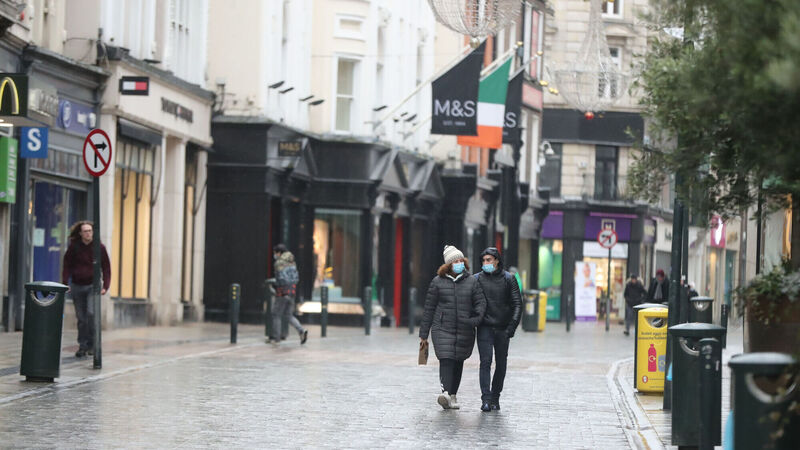Central Bank: Vaccines to drive rebound but Covid-19 economic scars may be long-lasting

People walk along a deserted Grafton St in Dublin city centre as Ireland remains in lockdown. Picture: Niall Carson/PA
The rollout of Covid-19 vaccines will spur the start of an economic rebound by the summer — but the scars from the crisis in increased unemployment, business failures, and mortgage arrears could be long-lasting, the Central Bank has said.
The Central Bank in its latest outlook also said the "profound societal and economic" effects of the Covid crisis on an already acute housing crisis will lead to 23,000 fewer homes being built than it once thought.














